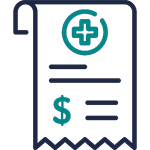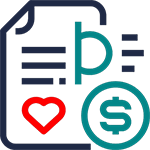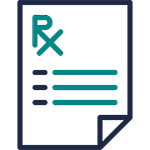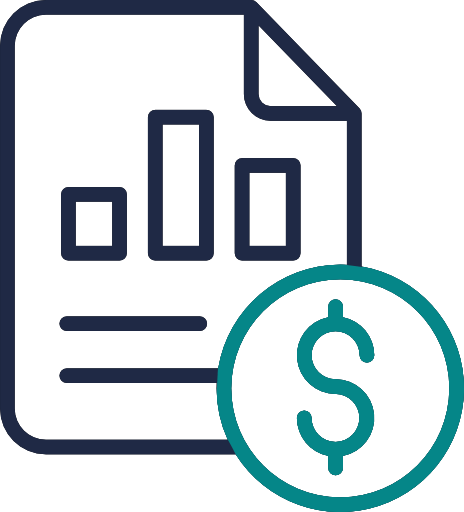Medical billing compliance, though sometimes complex, is crucial for the seamless operation of healthcare facilities. It is not just a procedural necessity; it’s an integral part of healthcare management, crucial for ensuring ethical and legal billing practices.
For healthcare providers, including doctors, practices, and medical professionals across various specialties, understanding and adhering to medical billing compliance is essential.
This comprehensive exploration aims to provide the necessary knowledge to navigate this complex landscape successfully.
What is Medical Billing Compliance?
Medical billing compliance refers to the medical billing guide or process of accurately and legally billing for medical services rendered. It involves adhering to a myriad of federal and state laws, alongside guidelines set by entities like Medicare, Medicaid, and private insurance companies.
Compliance is pivotal for maintaining the financial health of a healthcare practice, affecting revenue, patient satisfaction, and legal standing.
The Regulatory Framework of Medical Billing Compliance
Medical billing compliance is shaped by a web of regulations stemming from various sources, including:
Federal Laws
Notable acts like the Health Insurance Portability and Accountability Act (HIPAA), Affordable Care Act (ACA), and No Surprises Act form the federal backbone of medical billing compliance.
State Laws
Specific state legislations like Illinois’ Fair Patient Billing Act.
Medicare and Medicaid Guidelines
These government programs have distinct billing criteria that must be adhered to.
Private Insurance Policies
Each insurer may have unique billing guidelines and requirements.
The goal of compliance is to ensure that healthcare providers employ accurate and ethical billing practices, reflecting the integrity of the healthcare system.
The Importance of Compliance in Healthcare
Medical coding compliance plays a critical role in the sustainability of healthcare practices. Non-compliance can lead to substantial financial penalties, legal consequences, reputational damage, and operational disruptions. In 2022, healthcare fraud judgments and settlements accounted for over $3 billion, underlining the severe implications of non-compliance.
Financial Ramifications
Non-compliance can lead to lost revenue, legal actions, reimbursement denials, and allegations of fraud and abuse. It’s vital for healthcare practices to stay compliant to avoid these financial strains.
Legal and Reputational Consequences
Legal ramifications of non-compliance can include civil and criminal penalties, with severe cases leading to imprisonment. Non-compliance also risks significant reputational damage, which can erode patient trust and reduce patient numbers.
Elements of a Robust Medical Billing Compliance Program
To navigate the complexities of medical billing compliance, healthcare organizations should incorporate several key elements:
- Comprehensive Compliance Program: This should include regular compliance training, quality improvement systems for clinical documentation, consistent monitoring and auditing activities, standardized processes for reporting violations, and ongoing risk assessment evaluations.
- Technology Integration: Leveraging automated tools and software applications can improve compliance and reduce human error. Effective technology usage requires careful selection and staff training.
- Regular Review of Healthcare Payer Contracts: Understanding the intricacies of payer contracts, including dispute resolution requirements, fee schedules, and network requirements, is essential for maintaining compliance.
- Regular Audits: Performing coding and billing audits helps identify and correct compliance mistakes before they escalate into bigger issues.
- Prompt Response to Denied Claims: Managing denied claims efficiently is vital. The American Health Information Management Association reports that the initial claim denial rate is about 20 percent, with more than half of these claims not reworked or resubmitted.
Navigating Compliance Challenges
Let’s talk about the medical coding disadvantages. Yes, it’s an essential part of modern healthcare, but it’s not without its challenges.
Staying updated with the evolving landscape of billing codes, laws, and regulations is one of the major compliance and regulatory medical coding challenges.
The transition from ICD-9 to ICD-10, for instance, significantly increased the number of codes, highlighting the need for continuous learning and adaptation. Embracing technology, understanding payer specifics, maintaining patient confidentiality, managing staff turnover, and creatively addressing resource limitations are also key to effectively navigating these challenges.
Implementing Effective Compliance Strategies
Staff Training and Development: Ongoing training for all staff involved in the billing process is crucial. This includes education on accurate coding, proper documentation, and understanding of relevant laws and regulations.
Ethical and Legal Standards: Upholding high ethical and legal standards is imperative for any healthcare practice. This includes adhering to HIPAA standards, ensuring patient privacy, and avoiding fraudulent practices like upcoding or duplicate billing.
5 Ways You Can Protect Your Practice

In addition to the comprehensive strategies already discussed, here are five additional ways you can protect your practice and ensure medical billing compliance:
- Implement a Robust Internal Reporting System: Establish an accessible and anonymous internal reporting system for your staff. This system should encourage reporting of any suspected compliance issues without fear of retribution. It’s a proactive step in identifying and addressing potential compliance problems before they escalate.
- Engage in Continuous Legal Education: Regularly update your knowledge of legal changes in healthcare billing. Attending seminars, workshops, and subscribing to healthcare law newsletters can keep you informed about the latest developments.
- Foster a Culture of Transparency and Ethics: Create an environment where ethical practices are valued, and transparency is the norm. Encourage open discussions about compliance and ethical dilemmas. This cultural shift can significantly reduce the risk of compliance breaches.
- Collaborate with Compliance Consultants: Consider working with external compliance consultants. These experts can provide an objective review of your billing practices, identify areas for improvement, and offer tailored advice to enhance your compliance strategies.
- Regularly Update Patient Consent and Information Forms: Ensure that all patient forms, including consent and information documents, are up-to-date and compliant with current laws. This not only protects patient rights but also safeguards your practice against potential legal issues related to patient information handling.
By implementing these additional measures, you can strengthen your practice’s defenses against compliance risks, ensuring a more secure and ethically sound operation. These steps complement the core strategies of medical billing compliance, contributing to a holistic approach to protecting your healthcare practice.
Current Medical Billing Regulations and Standards
Staying informed about current medical billing regulations and standards is crucial for healthcare practices. Here’s an overview to enhance your understanding:
- Transition to ICD-11: The World Health Organization has released the 11th revision of the International Classification of Diseases (ICD-11). While not yet implemented in many countries, including the U.S., it’s important to prepare for its eventual adoption. ICD-11 provides more detailed data and is designed to be more adaptable to technological advancements.
- Telehealth Billing Updates: The pandemic has accelerated the adoption of telehealth services. Current regulations have expanded to include more comprehensive guidelines for telehealth billing, ensuring providers are reimbursed for virtual care services.
- No Surprises Act: Implemented in 2022, this act protects patients from unexpected out-of-network bills. Healthcare providers must now provide good faith estimates for services to patients who are uninsured or not using insurance.
- Enhanced Focus on Mental Health Billing: Recent changes have been made to improve access to mental health services, including adjustments in billing codes and guidelines to facilitate easier billing for mental health services.
- Increased Scrutiny on Drug Pricing and Billing: There is a growing focus on the transparency of drug pricing and its impact on healthcare billing. This includes new regulations aimed at reducing prescription drug costs and ensuring fair billing practices.
- Value-Based Care and Reimbursement Models: There’s a continued shift towards value-based care models. These models focus on patient outcomes and quality of care rather than the volume of services provided, influencing how healthcare providers bill for their services.
By staying abreast of these current regulations and standards, healthcare providers can ensure compliance, adapt to evolving healthcare landscapes, and maintain the highest standards of patient care and billing practices.
Conclusion: The Imperative of Medical Billing Compliance
Medical billing compliance is a regulatory necessity and a vital component of quality healthcare. It significantly impacts a practice’s success, involving staying abreast of coding updates, ensuring thorough documentation, conducting routine audits, effectively utilizing technology, understanding payer policies, and maintaining patient confidentiality. By focusing on these critical areas, healthcare providers can enhance compliance, leading to a more efficient, ethical, and profitable practice. Far from being just a bureaucratic formality, compliance is a fundamental aspect of the commitment to providing quality healthcare.
FAQs
Q: What is medical billing compliance?
A: Ensuring billing aligns with legal and ethical healthcare standards.
Q: Why is medical billing compliance important?
A: It safeguards against legal issues and ensures accurate patient billing.
Q: What does HIPAA compliance involve in billing?
A: Protecting patient data privacy during the billing process.
Q: How can technology aid in billing compliance?
A: Automating processes to reduce errors and improve efficiency.
Q: What are common consequences of non-compliance?
A: Penalties, legal action, and damage to reputation.



















